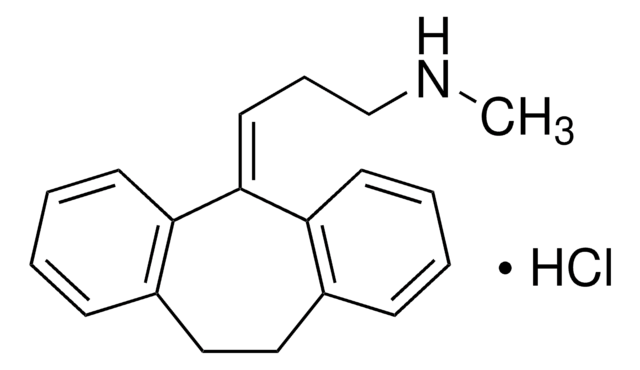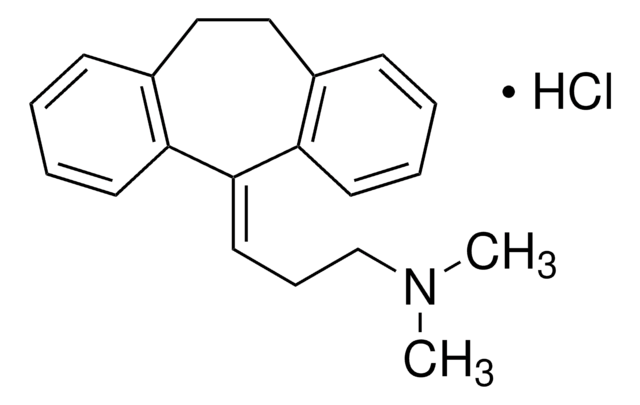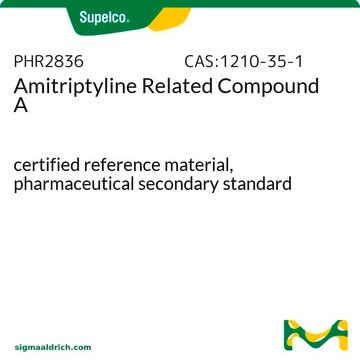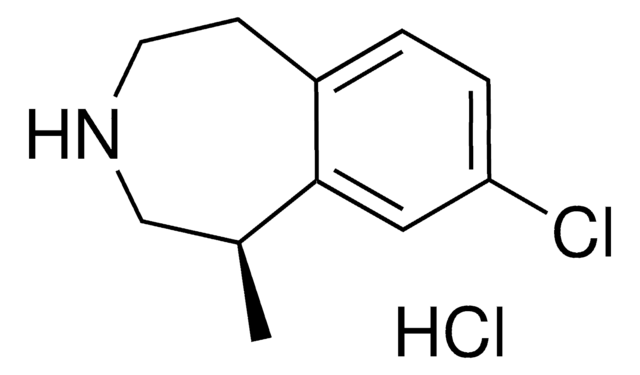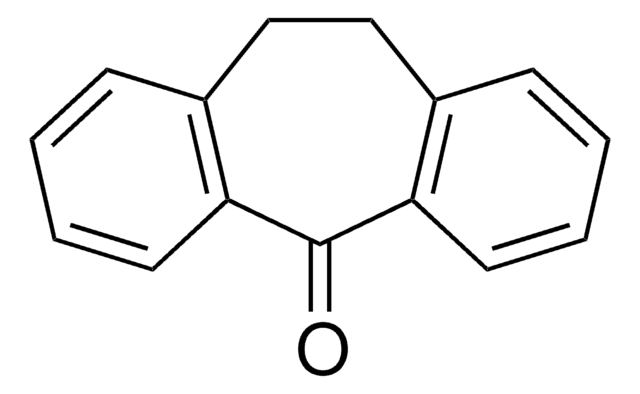N1280000
Nortriptyline hydrochloride
European Pharmacopoeia (EP) Reference Standard
Synonym(s):
3-(10,11-Dihydro-5H-dibenzo[a,d]cyclohepten-5-ylidene)-N-methyl-1-propanamine hydrochloride, Desmethylamitriptyline hydrochloride
About This Item
Recommended Products
grade
pharmaceutical primary standard
API family
nortriptyline
manufacturer/tradename
EDQM
application(s)
pharmaceutical (small molecule)
format
neat
SMILES string
Cl.CNCC\C=C1\c2ccccc2CCc3ccccc13
InChI
1S/C19H21N.ClH/c1-20-14-6-11-19-17-9-4-2-7-15(17)12-13-16-8-3-5-10-18(16)19;/h2-5,7-11,20H,6,12-14H2,1H3;1H
InChI key
SHAYBENGXDALFF-UHFFFAOYSA-N
Gene Information
human ... SLC6A2(6530) , SLC6A4(6532)
Looking for similar products? Visit Product Comparison Guide
General description
Application
Packaging
Other Notes
related product
signalword
Warning
hcodes
pcodes
Hazard Classifications
Acute Tox. 4 Oral
Storage Class
11 - Combustible Solids
wgk_germany
WGK 3
flash_point_f
Not applicable
flash_point_c
Not applicable
Choose from one of the most recent versions:
Certificates of Analysis (COA)
Sorry, we don't have COAs for this product available online at this time.
If you need assistance, please contact Customer Support.
Already Own This Product?
Find documentation for the products that you have recently purchased in the Document Library.
Our team of scientists has experience in all areas of research including Life Science, Material Science, Chemical Synthesis, Chromatography, Analytical and many others.
Contact Technical Service